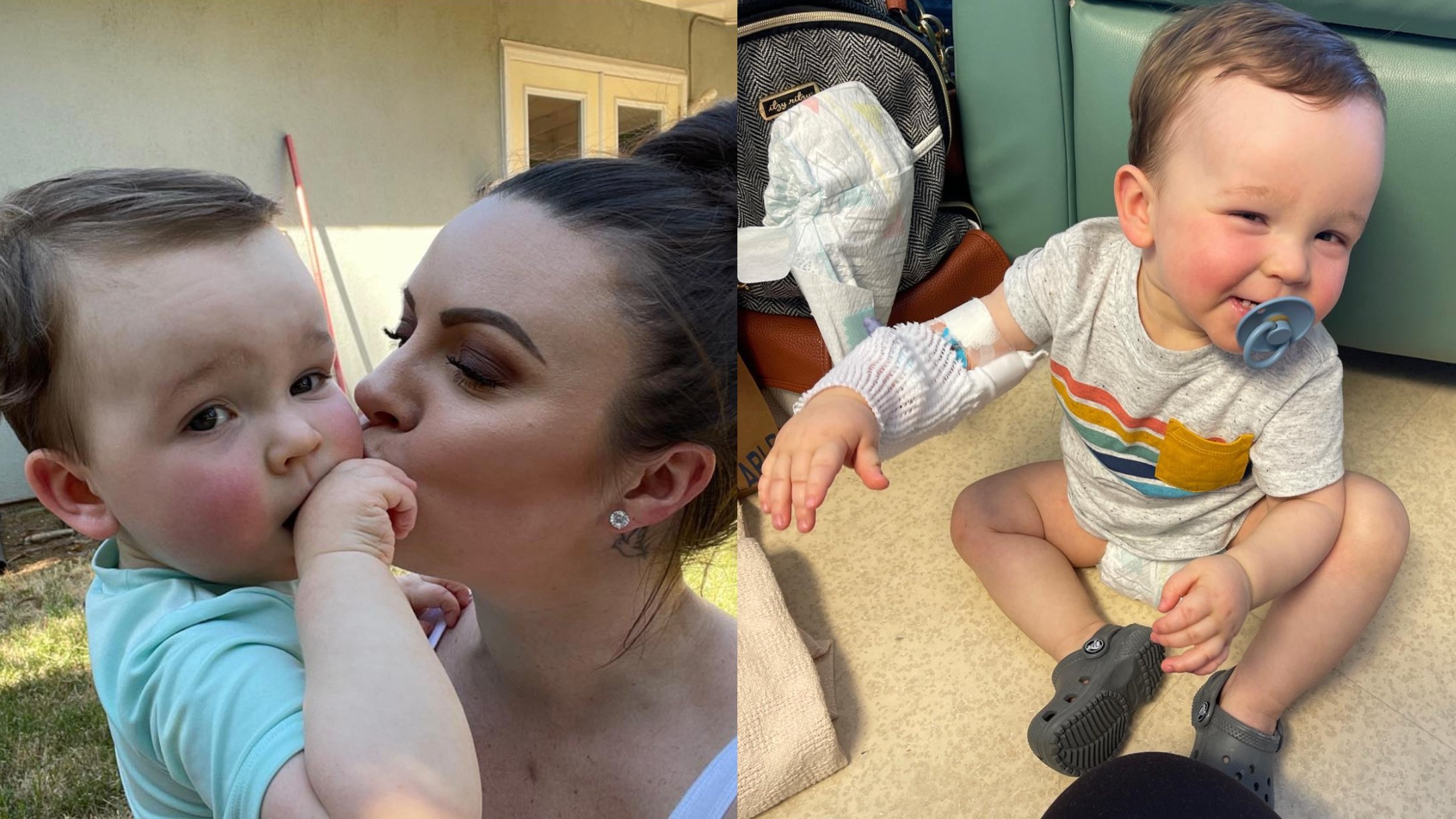
Courtney Moore says it was little things at first that made her wonder if something wasn't right with her son, Maddox. Starting in early July, she would awake each morning to find her 16-month-old leaking through his soaking wet diaper. At the same time, he was "ferociously thirsty" — reaching for her water bottle and then "chugging it" down fast. He was also losing weight, but somehow that was easy to explain away, too. It wasn't until the Sacramento, CA, mom took her son for some bloodwork that the reason for his symptoms was finally explained: Maddox had type-1 diabetes — and unbeknownst to Moore, he was in desperate need of medical attention.
Just an hour after the appointment, Moore saw she had four missed calls
It was the doctor's office — urging her to rush the toddler to the ER right away.
As it turned out, the bloodwork showed that her son's blood glucose (or blood sugar) level was off the charts. While a "normal" reading should be somewhere between 100-180 for a child his age, Maddox's had skyrocketed to nearly 700.
In that moment, Moore says her "world just stopped"
"They said I needed to take him to the emergency room right away …," she recently told Good Morning America. "I can't imagine had we waited any longer."
It's a good thing she'll never have to.
Once Maddox was admitted to the hospital, he was immediately diagnosed with type 1 diabetes and treated for diabetic ketoacidosis — a serious diabetes complication where the body produces excess blood acids (also known as ketones).
According to the Mayo Clinic, the condition develops when your body can't produce enough insulin, which helps regulate your blood sugar (glucose) levels.
"Without enough insulin, your body begins to break down fat as fuel," the Mayo Clinic website states. "This process produces a buildup of acids in the bloodstream called ketones, eventually leading to diabetic ketoacidosis if untreated."
Apparently, that's exactly what happened to little Maddox
But luckily, he was helped just in time.
The California toddler wound up spending two nights in the hospital before he was sent home, and now Moore and her husband Jason have been thrust into a whole new world of daily insulin shots and blood glucose monitoring.
Even so, the couple feels grateful things didn't get worse
"I'm very blessed that he's as young as he is in a sense, because he doesn't understand and he's so resilient," Moore told GMA. "Yes, our lives got turned upside down, but he's happy and he's doing really well."
As scary as the experience was, Moore is now doing her best to make other parents aware of the signs and signals she didn't notice were a big deal until things escalated.
"My point is not to scare people," she told the outlet, "but just [remind them] to be very aware and keep tracking those things."
On July 8, Moore took to Facebook to share her story
"I’m sharing this because what we could’ve written off as being due to warmer weather and being an active toddler literally could’ve killed our son," wrote Moore.
It's true.
Her son's extreme thirst might have seemed strange under normal circumstances, but considering the extreme heat wave that recently hit Northern California, it was easy to shrug off at first. And as for his recent weight loss? Moore explained that her son had "slimmed down" a bit, but had also just started walking, which could explain the change.
In the end, Moore just "knew" something was off
And if she hadn't listened to that little voice in her head, things may have turned out very differently.
It's estimated that 1.6 million Americans are currently living with type 1 diabetes — and 200,000 of them are under the age of 20. While the disease can be managed, it makes the body vulnerable to a variety of complications that can affect the overall quality of life, and requires diligent monitoring and self-care.
Thankfully, the Moores are now equipped with the knowledge they need to ensure Maddox has a healthy and productive life — and their hope going forward is to simply inform and empower other parents who may find themselves in the same shoes.
"Moral of the story, parents, pay attention to your kids and trust your gut," Moore wrote. "We got very lucky."




